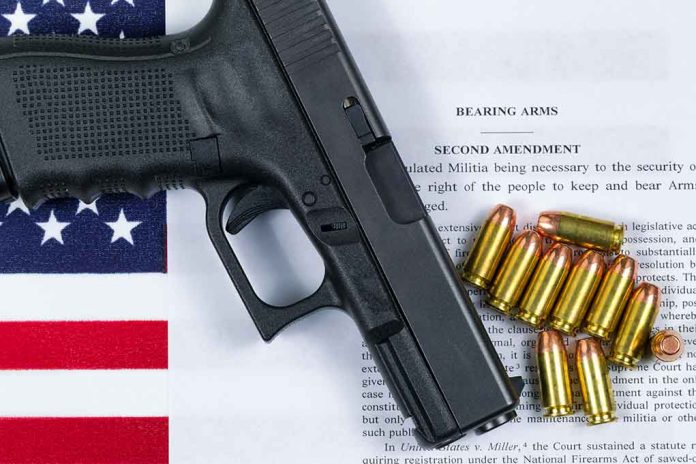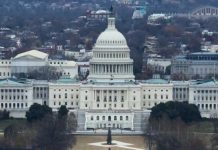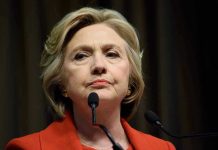
Kash Patel, the newly appointed FBI Director, is set to take on an additional role as acting director of the Bureau of Alcohol, Tobacco, Firearms, and Explosives (ATF), marking a significant shift in leadership for both agencies.
Key Takeaways
- Kash Patel, current FBI Director, is expected to be appointed as acting director of the ATF.
- The ATF has faced criticism for recent firearm regulations under the Biden administration.
- Attorney General Pam Bondi fired the ATF’s general counsel, citing concerns over targeting gun owners.
- President Trump has directed a review of Biden-era firearms actions for potential Second Amendment infringements.
- Patel’s appointment has drawn both praise from gun rights groups and concern from gun safety advocates.
Patel’s Dual Leadership Role
In a move that signals a significant change in federal law enforcement leadership, Kash Patel is poised to assume control of the ATF while continuing his role as FBI Director. This appointment comes in the wake of Steven Dettelbach’s resignation as ATF director before President Trump’s inauguration. Patel was recently confirmed as FBI Director, with a Senate vote of 51-49, setting the stage for his expanded responsibilities.
The ATF, an agency responsible for enforcing laws related to firearms, explosives, and arson, has been at the center of controversy due to recent regulatory actions. Under the Biden administration, the bureau implemented stringent measures on ghost guns and expanded background checks, drawing significant backlash from gun owners and Republican lawmakers.
🚨 JUST IN: President Donald Trump is naming Kash Patel as acting ATF director – ABC pic.twitter.com/912NV5Dwgj
— Eric Daugherty (@EricLDaugh) February 22, 2025
Shakeup at the ATF
The leadership change at the ATF is accompanied by other significant personnel moves. Attorney General Pam Bondi recently fired the ATF’s general counsel, Pamela Hicks, citing concerns over the agency’s approach to gun owners. This action underscores the new administration’s intent to reshape the ATF’s priorities and operations.
The dismissal of Hicks signals a major shift in the ATF’s approach to firearms regulation and enforcement. Bondi’s statement on Fox News that the agency was “targeting gun owners” suggests a reorientation of the bureau’s focus under the new administration.
Reactions and Expectations
Patel’s appointment has elicited mixed reactions from various stakeholders. Gun rights advocates have expressed support for the move, with Gun Owners of America hailing Patel’s FBI confirmation as “a major victory for gun owners and constitutional rights advocates nationwide.” This sentiment comes from the expectation that Patel will adopt a more Second Amendment-friendly approach in his leadership of the ATF.
However, gun safety groups have voiced concerns, labeling Patel a “known gun rights extremist.” This polarization highlights the contentious nature of firearms regulation and the high stakes involved in ATF leadership.
Future of ATF Policies
President Trump’s recent executive order directing the attorney general to review Biden administration actions on firearms for potential Second Amendment infringements suggests a possible rollback of recent ATF regulations. This directive, coupled with Patel’s appointment, may signal a significant shift in the agency’s approach to firearms regulation.
The future of controversial measures such as regulations on ghost guns, expanded background checks, and the ban on stabilizer braces for AR-pistols remains uncertain under Patel’s leadership. Some Republican lawmakers have even called for the abolition of the ATF, with Rep. Eric Burlison introducing a bill to eliminate the agency, describing it as “redundant” and in violation of Second Amendment rights.
As Kash Patel prepares to take the helm of both the FBI and ATF, the firearms community and law enforcement agencies alike are bracing for potential significant changes in federal firearms policy and enforcement strategies. The coming months will likely reveal the full extent of the new administration’s vision for these law enforcement agencies.









